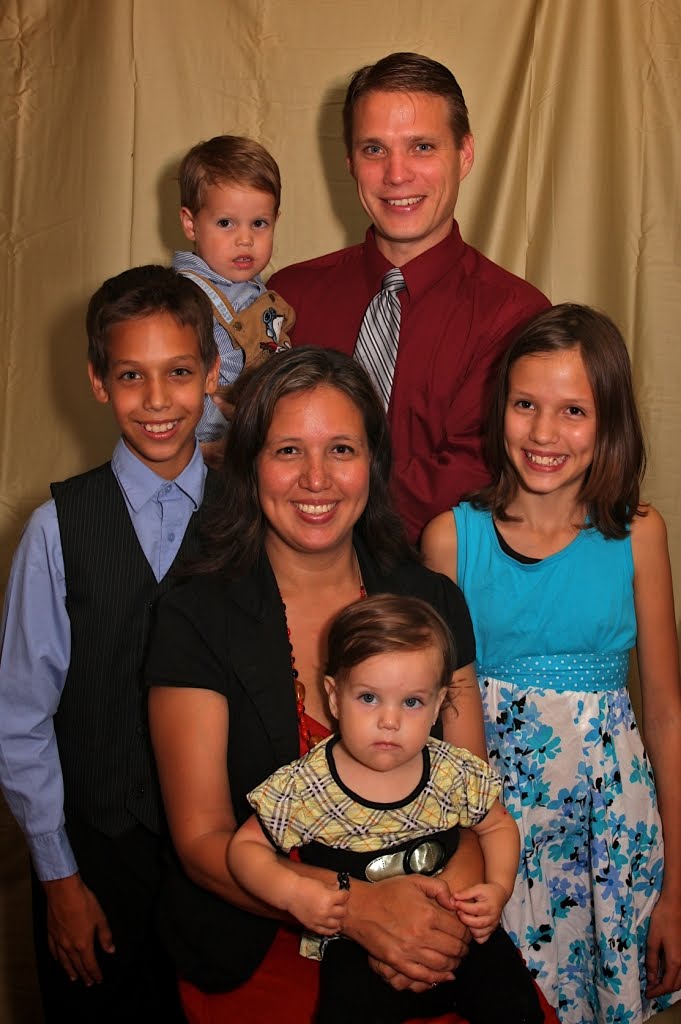Maggy found an article in an Ecuadorian newspaper about this Huaorani man who is in the U.S. taking is pilot training. It was neat for us to see this, as it sums up very well why we are going to Ecuador. We will help to overcome many of the obstacles in place that keep indigenous people from being connected to the outside world.
I have not verified any of the information in the article nor do I support any of the content. It is a direct translation from the original article.
A Huaorani Studies to be a Pilot
Olga Imbaquingo Correspondent in New York
From the Ecuadorian jungle to Michigan with a dream; become a pilot to return to the jungle to establish an aerial bridge and save the lives of his own people: the Huaorani. Menewa Nenquimo Enqueri had already taken the first huge step to obtain it 15 years ago.
This young man of 25, who came to learn through oral history the story of the 5 American missionaries who died in 1956 from the tips of the arrows of his people, has just graduated as an aviation mechanic.
In September, he will begin his studies to be a commercial pilot, which consists of 250 hours piloting airplanes.
In addition, there is a factor in the merging of his world and that of Tim Paulson, a pastor’s son, who remembers as a child of hearing and reading of the “5 missionaries who landed an airplane on the banks of the Curaray River. The Aucas thought that they were a curse and they killed them.” Throughout the years, the story has been cemented in his memory.
Over the years, Paulson got to know the son of the pilot who took the 5 missionaries to the Curaray River and in addition, he himself is a missionary and takes young people to see how the Huaoranis live. It was in one of these trips that Nenquimo’s parents asked him to help make him a pilot, because when there is sickness or any other type of emergency, they do not receive help immediately.
That is how this young Amazonian man arrived at the School of Missionary Aviation Technology in Iona, Michigan (United States) with 2 years of high school and no knowledge of technology.
“Menewa knows more than the pilots because he is a mechanic. He has made several flights as a co-pilot in one of his instructor’s airplanes”, Paulson says. “This young man is very intelligent, bright and determined.”
Nenquimo has his own version of the experience. “I suffered because I am not from the city, I am from the jungle and we do not have technology there.” He tells of the time that he realized that his friends didn’t understand how neither the cold nor the snow affected him. “Here, they are always covered up, and I am fine with just a t-shirt.”
His inherent ingenuity is attacked by worrisome moments. His roommate was the son of Colombian parents who helped him pay his rent, but he changed schools. “I believe that economy here is also bad, I still have not found an apartment near my school.” Paulson lives 96 kilometers away and it is impossible for Nenquimo to commute every day.
Both are waiting for “God to help us…”
The young Huaorani man, in his favor, has his commitment, that has turned into an obsession, that his people are waiting for him and that “they in more need than am I. Everything that I do is for them.”
When he leaves, he will leave with the memory that the “gringos” that he has met are not as bad as his ancestors once believed.
“Without a doubt, what I have enjoyed most are the people. Where I go they are very kind.” Jim and Julie McKay also are part of the story. Many weekends are spent with them.
According to the Argus-Press of Caledonia, Julie McKay says that Nenquimo has spent a few Christmases with them and “he likes potatoes, because he ate them in Ecuador.”
Jim McKay is one of the professors and has students from Africa, Brazil and Honduras. “Culturally, he fits perfectly and is excellent in academics, in spite of the language barrier.” It is with him that he has gone up as co-pilot in his spare time. He also takes his daughter flying.
The progress of this young man in technical English and understanding of mechanics has qualified him so that “they have me inspect the work of my classmates”, relates Nenquimo.
“This is the story that shows us that the Huaorani have much to offer us and that we just have to show them how to fish and they will do it themselves”, is Paulson’s conviction.
Nenquimo also tells of his experiences…
Nenquimo has been in Michigan since June 16, 2008 and it has been the assistance of the churches and a few volunteers who have made it possible to proceed in his studies. The total cost to be a pilot is $47,000 U.S.
The school where he is studying has not lowered its prices, but at least are accepting payments. Anyone who would like to help is able to communicate via this email: eaglewingtp@aol.com. Paulson is not silent with his intention to help Nenquimo. Together, they traveled to Iowa and Colorado to interview with anthropologists who are familiar with the Huaorani history to attempt to secure assistance. Nenquimo also has spoken, telling of the way of life in Amazonia. “People are impressed with the knowledge of this young man. Thank you to those who understand that there are other perspectives of living,” says Paulson.
http://www.elcomercio.com/
Monday, August 31, 2009
Subscribe to:
Post Comments (Atom)




1 comment:
David, Maybe you should invite him down here and train him yourself!!!! Love MOM
Post a Comment